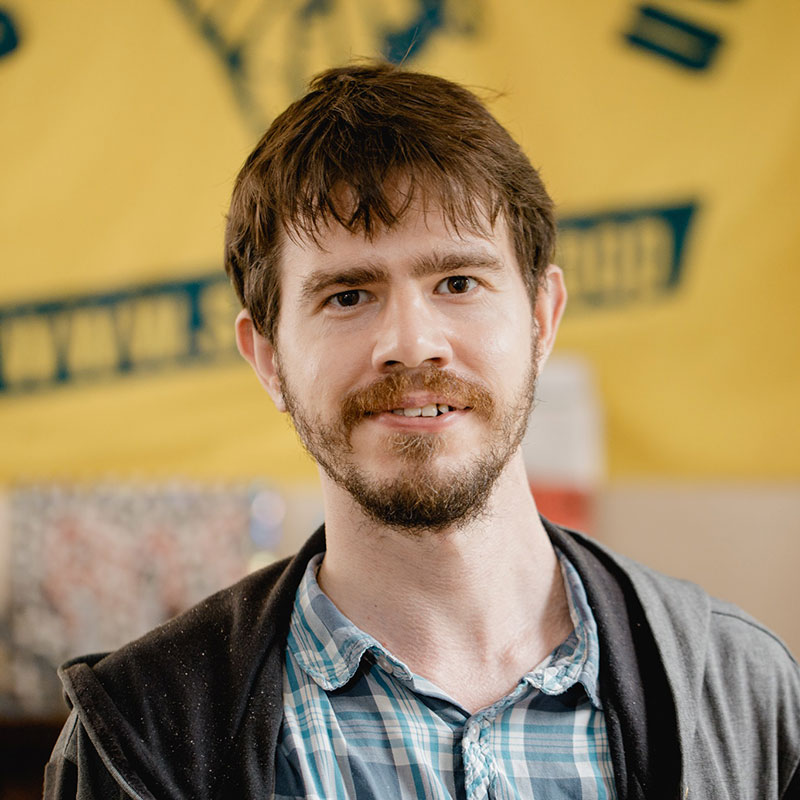 While studying for his Sociology degree, Martin Bradbury suffered from anxiety and depression. Despite living in shared accommodation with other students, he felt isolated too. “It was prevalent among the people I know. But everyone was stuck in their own problems. None of us were very well, so we didn’t really notice that we were all feeling bad,” he recalls.
While studying for his Sociology degree, Martin Bradbury suffered from anxiety and depression. Despite living in shared accommodation with other students, he felt isolated too. “It was prevalent among the people I know. But everyone was stuck in their own problems. None of us were very well, so we didn’t really notice that we were all feeling bad,” he recalls.
Fast forward three years, he’s living in the Birmingham Student Housing Co-op and feeling much more hopeful, happy and relaxed. And he no longer feels isolated. “It’s a sociable house,” says Martin. In stark contrast to the environment of “the anxiety house,” it’s a place where communication is encouraged.
“We have fortnightly house meetings where people have the space to talk about what’s going on with them, and if anything is weighing on them, there are people around to support them,” he explains. “It’s an institutional structure of the house, based on trust and the shared principles of well-being and co-operation.”
After experiencing a period of isolation, co-op living has helped Martin reconnect with people, gain a new perspective – and a better understanding of what he went through. “It’s made a difference and given me the space to get my head together. When I was anxious and depressed, I stopped seeing people. I thought it was because of me. But having poor mental health, I was interpreting my circumstances much more negatively.
“I had my birthday party in this house, and 30 people showed up. I needed that! It’s welcoming and friendly. And it’s a nice base from which I can reach out to people and find out who I’m close to,” he says.
Martin completed his PGCE at Birmingham City University last year. And the co-op where he lives allows people to stay in the house for one year after graduation to help make the transition into work easier. “When they set up the co-op in 2014, they made the decision to do that because they knew that the year after graduation can be a rough time,” Martin explains.
Because of this policy, he moved into the house after completing his undergraduate degree, and it helped ease his worries. “Living in a housing co-op, there’s a lot less pressure about what to do next. For me, it was good having the headspace to figure out what I wanted to do. I had a period of unemployment so it would have been difficult to afford living anywhere else,” he says.
So with less stress and more support, co-op living has positively impacted Martin’s quality of life. “From what I’ve gathered, university can be a breeding ground for isolation and poor mental health, so it’s better that housing co-ops like this one exist. It’s a sociable place where like-minded people gather, and it serves as a hub for a community over a long period of time.”
